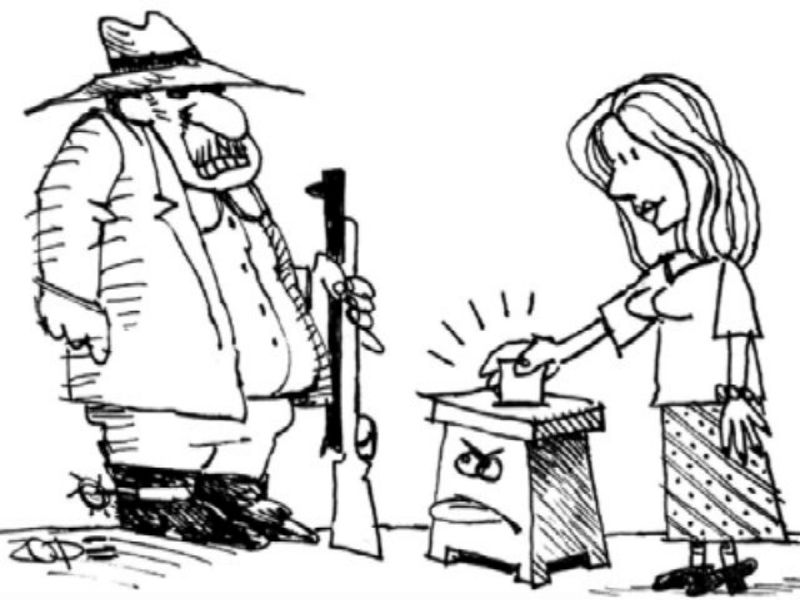Whose opinion is it?
Amidst the nail-bitingly competitive nature of Brazil’s general elections this year, the unpleasant side of electoral politics has reared its head, as supporters of each political party exchange vicious insults. Social media has intensified the rancor, with the Internet overflowing with remarks attributing the incumbent’s victory in the first round to rigid support from voters in Brazil’s Northeast. Though this may be true, the assertion is often accompanied by degrading comments about the self-interest of the poor who vote for the Workers Party (PT) in order to gain more social benefits at the expense of the country’s economy.
To criticize or insult a public figure is within the rights of any democratic citizen and comprises a key component of one’s freedom of expression. Yet in very few cases do people fully understand the realities of politics or the economy; rather, they base their opinions on information from the media, press and the Internet. And among those who disparage President Dilma and her party and voice support for the opposition, little is said or known about the corrupt reality of Brazil’s media, and the “coronelismo” that runs at its very heart. Much like the old agrarian oligarchs that used to cherry-pick Brazilian presidents during the Old Republic at the turn of the Nineteenth Century, today’s media ownership is dominated by a few families with strong ties to weathy landowners who exert influence over the political information disclosed to the masses. Media powers Globo, Rede, Folha, Estado and Editora Abril are all examples of such control, and have often demonstrated their influence in controversial ways, limiting political diversity and betraying the “watchdog” function of the press.
As a result, the political preferences of an exclusive elite come to form the opinions of millions, which then translate into a distorted political perspective that favors the established minority. To cite an infamous example discussed in the 1994 British documentary film Beyond Citizen Kane, Rede Globo was a staunch supporter of the military dictatorship prior to 1985, employing its political and economic influence to endorse the election of Collor de Mello in the 1989 presidential elections. Most notoriously, Globo edited the presidential debates to portray the candidate Lula de Silva as an incompetent radical, while highlighting Collor’s strengths. Consequently, the poor were swayed to vote for a candidate sponsored by the deep-rooted agrarian elite instead of a leftist leader who himself had risen from poverty. This element of crony journalism continues to pervade Brazilian politics today, obscuring the complexity of Brazil’s socioeconomic realities and condensing the information to the general public in a way compatible with the interests of the elite who run the show from the top. This also refutes the assertion that Brazil’s poor do not resolutely vote for leftists in exchange for social benefits, as has been suggested by many this year.
In 1985, Brazil overcame military dictatorship and restored democratic pluralism in the form of direct elections. Though it is evident that corruption permeates Brazilian society and politics at the present, one should not forget the value of the ballot as a result of decades of struggle against an oppressive regime. To reach a higher stage of democracy, Brazilian citizens must be accorded the right to choose based on information free from exclusive influences and special interests, which unfortunately characterizes the mass media today.
Sources: en.rsf.org, freespeechdebate.com

Bella is Bella. This is her second year in The Talon and she now holds office as POV Columnist. She needs 12 hours of sleep each day to function properly,...











